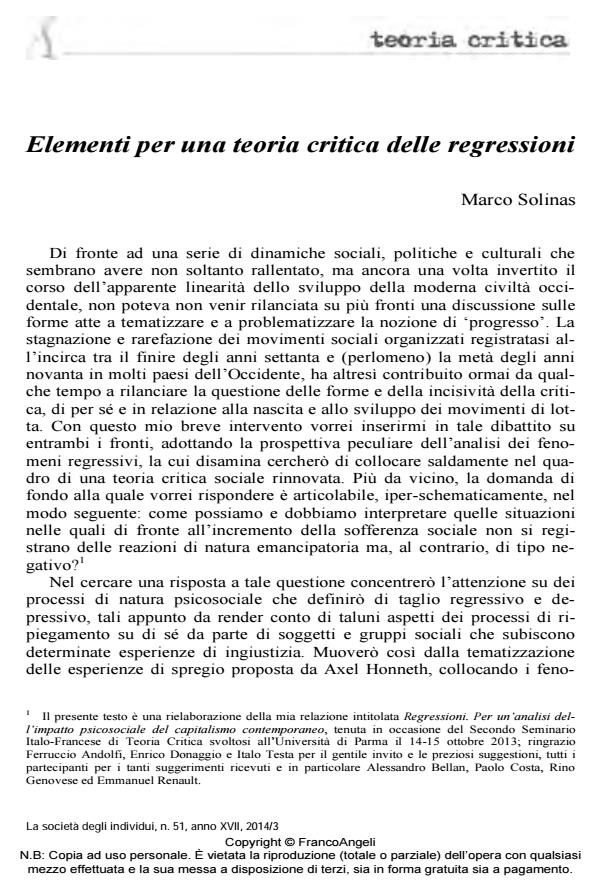Elementi per una teoria critica delle regressioni
Titolo Rivista SOCIETÀ DEGLI INDIVIDUI (LA)
Autori/Curatori Marco Solinas
Anno di pubblicazione 2015 Fascicolo 2014/51
Lingua Italiano Numero pagine 12 P. 141-152 Dimensione file 186 KB
DOI 10.3280/LAS2014-051010
Il DOI è il codice a barre della proprietà intellettuale: per saperne di più
clicca qui
Qui sotto puoi vedere in anteprima la prima pagina di questo articolo.
Se questo articolo ti interessa, lo puoi acquistare (e scaricare in formato pdf) seguendo le facili indicazioni per acquistare il download credit. Acquista Download Credits per scaricare questo Articolo in formato PDF

FrancoAngeli è membro della Publishers International Linking Association, Inc (PILA), associazione indipendente e non profit per facilitare (attraverso i servizi tecnologici implementati da CrossRef.org) l’accesso degli studiosi ai contenuti digitali nelle pubblicazioni professionali e scientifiche.
The essay aims to offer a critical theory of psychosocial processes of regressive and depressive type. The author starts by discussing the determining influence attributed to social suffering in the framework of the moral grammar of social struggle outlined by Axel Honneth. The author discusses some important points of Walter Benjamin’s philosophy of history, in particularly Benjamin’s critique of traditional concept of progress, and the determining role attributed to suffering; points that are translated and moved in the framework of the analysis of regressive processes. Lastly, the author shows how a critical theory that aims to reactivate the emancipatory potential immanent in the social suffering may find an incisive and productive approach in a critical analysis of regressions.
- Rivolte mancate. Sulle correlazioni tra emozioni e spregio in Axel Honneth e Barrington Moore Jr Marco Solinas, in PARADIGMI 2/2017 pp.207
DOI: 10.3280/PARA2017-002014
Marco Solinas, Elementi per una teoria critica delle regressioni in "SOCIETÀ DEGLI INDIVIDUI (LA)" 51/2014, pp 141-152, DOI: 10.3280/LAS2014-051010